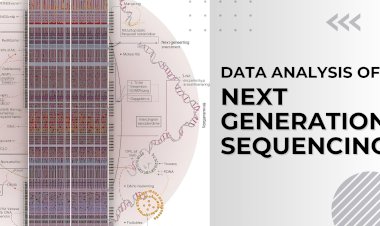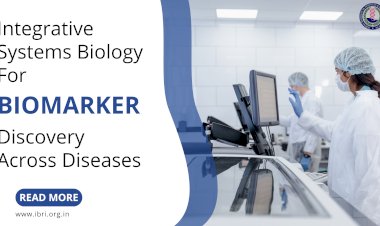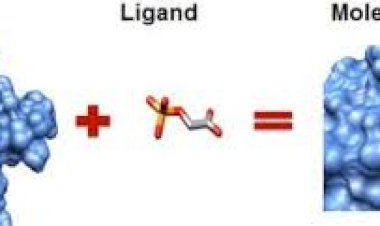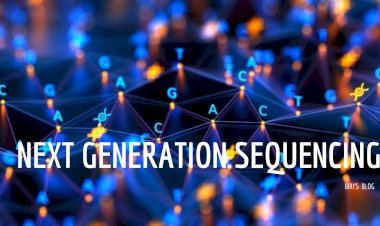Next-Generation Sequencing (NGS): A Beginner’s Guide & Its Scope
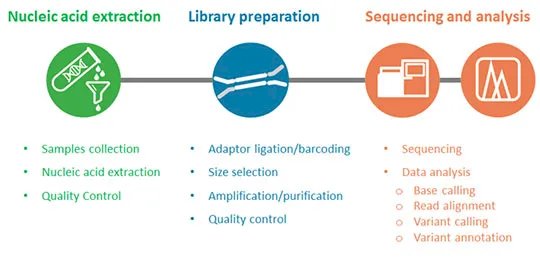
Introduction to Next-Generation Sequencing (NGS): A Beginner’s Guide & Its Scope in current industry
Next-Generation Sequencing (NGS) is revolutionizing biological sciences by providing a high-throughput, precise, and cost-effective method for analyzing genomes, transcriptomes, and epigenomes. For beginners stepping into the fascinating world of genomics, understanding the fundamentals and applications of NGS can open doors to numerous opportunities in biotechnology, pharmaceuticals, and academic research. In this blog post, we’ll break down the basics of NGS and discuss its burgeoning scope in India, specifically within Indian research institutes and the biological sciences sector.
What is Next-Generation Sequencing (NGS)?
NGS refers to high-throughput methods that allow for the sequencing of millions to billions of DNA or RNA molecules simultaneously. Compared to traditional Sanger sequencing, which could only sequence a single DNA fragment at a time, NGS is faster, more efficient, and cost-effective. It has enabled a new era of genomics, making it possible to:
- Sequence entire genomes in just days or weeks.
- Analyze gene expression patterns through RNA sequencing (RNA-seq).
- Identify genetic mutations related to diseases like cancer through whole-exome sequencing (WES).
- Detect rare genetic variants and perform population-level studies.
How Does NGS Work?
In simple terms, NGS involves the following steps:
- DNA/RNA Sample Preparation: The DNA or RNA is extracted and converted into a sequencing-ready format, typically by fragmenting the nucleic acid.
- Library Construction: Adapters are added to the ends of the DNA/RNA fragments, allowing them to bind to the sequencing platform.
- Amplification and Sequencing: The DNA/RNA fragments are amplified using techniques like Polymerase Chain Reaction (PCR) and sequenced in parallel.
- Data Analysis: The vast amount of sequencing data is processed and analyzed using bioinformatics tools to identify genetic variations, gene expression levels, or other features of interest.
Scope of NGS in India’s Biotechnology Industry
The global biotechnology industry is witnessing a massive surge in the adoption of NGS technologies, and India is no exception. The applications of NGS span across various fields, including:
-
Medical Genomics and Personalized Medicine: NGS is paving the way for personalized treatment strategies by allowing doctors to tailor therapies based on a patient’s genetic makeup. In India, several healthcare institutions are integrating NGS to identify genetic predispositions to diseases like cancer, diabetes, and cardiovascular disorders.
-
Agrigenomics: With agriculture being a cornerstone of India's economy, NGS technologies are increasingly used to improve crop yield, resistance to pests, and climate resilience through genomic selection and genetic engineering.
-
Infectious Disease Research: NGS has played a critical role in the fight against diseases like COVID-19 by enabling rapid virus genome sequencing. Indian institutes such as the National Institute of Virology (NIV) and CSIR-Institute of Genomics and Integrative Biology (IGIB) have employed NGS to study viral evolution and outbreaks.
-
Drug Discovery and Development: Pharmaceutical companies in India are leveraging NGS to identify new drug targets, study drug resistance, and develop biomarkers that help in creating more effective treatments.
Role of Indian Biological Sciences and Research Institutes in NGS Education
India has numerous prestigious research institutions and universities offering cutting-edge courses and training in NGS technologies. These institutions are key to fostering the next generation of genomics experts.
-
National Centre for Biological Sciences (NCBS), Bengaluru: A leading institution for research in molecular biology and genetics, NCBS offers various courses and hands-on workshops on NGS and bioinformatics. Their programs focus on genomics research in model organisms, human health, and plant genomics.
-
Institute of Genomics and Integrative Biology (IGIB), Delhi: IGIB is at the forefront of genomics research in India and has several initiatives to train students and professionals in NGS applications. Their "IndiGen" program aims to generate Indian-specific genomic data, enhancing the personalized medicine framework in the country.
-
Centre for Cellular and Molecular Biology (CCMB), Hyderabad: CCMB offers advanced courses in genome sequencing and bioinformatics, helping students understand the practical applications of NGS in areas like genetic disease research, animal genomics, and microbial sequencing.
-
Indian Institutes of Technology (IITs): IITs, especially IIT Delhi and IIT Madras, are incorporating NGS technologies into their biotechnology and bioinformatics curricula. They offer specialized programs in computational biology, which are integral to NGS data analysis.
-
Indian Biological Sciences and Research Institute (IBRI): For those looking to build a career in NGS, Indian Biological Sciences and Research Institute (IBRI) provides an excellent opportunity. IBRI offers a variety of courses and certifications that focus on the theoretical and practical aspects of NGS. Whether you're a novice or a professional looking to upskill, IBRI's comprehensive courses ensure that you gain hands-on experience in NGS technologies, experimental workflows, and bioinformatics analysis.
Future of NGS in India: Promising Trends
The future of NGS in India looks incredibly promising. Key trends shaping the industry include:
-
Government Initiatives and Funding: The Indian government, through agencies like the Department of Biotechnology (DBT), is investing heavily in genomics research. Projects like the Genome India Initiative, which aims to sequence the genetic makeup of over a million Indians, are putting the spotlight on NGS technology.
-
Growing Demand for Skilled Genomics Professionals: With the rapid growth of biotechnology and personalized medicine in India, there is a high demand for professionals skilled in NGS and bioinformatics. Indian research institutions and universities are expanding their courses to meet this demand, offering programs that blend theoretical knowledge with practical applications.
-
Integration with Artificial Intelligence (AI): AI and machine learning are being increasingly used to analyze NGS data, providing deeper insights into complex biological systems. Research institutes are now offering interdisciplinary courses that combine NGS with AI, equipping students with the skills needed to handle large-scale genomic data.
Conclusion
Next-Generation Sequencing (NGS) is transforming the landscape of biological sciences and biotechnology. In India, its applications are vast, ranging from healthcare and agriculture to drug development and infectious disease research. With the growing demand for genomics experts, numerous Indian research institutes are stepping up to offer specialized courses and hands-on training in NGS technologies.
As NGS continues to shape the future of personalized medicine and biological research, aspiring scientists and professionals should consider diving into this field. Whether through academic courses or research projects, there’s no doubt that NGS will be at the forefront of groundbreaking discoveries in the years to come.
#NGS #genomics #biotechnology #indianresearch #bioinformatics #genomesequencing #personalizedmedicine #agrigenomics #nextgentechnology #researchinstitutesindia #ibricourses #molecularbiology

 Manju
Manju 






